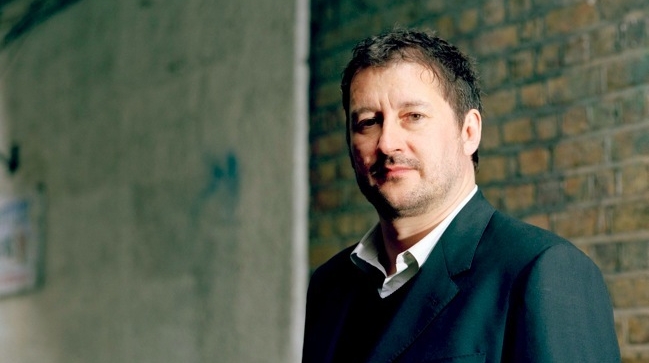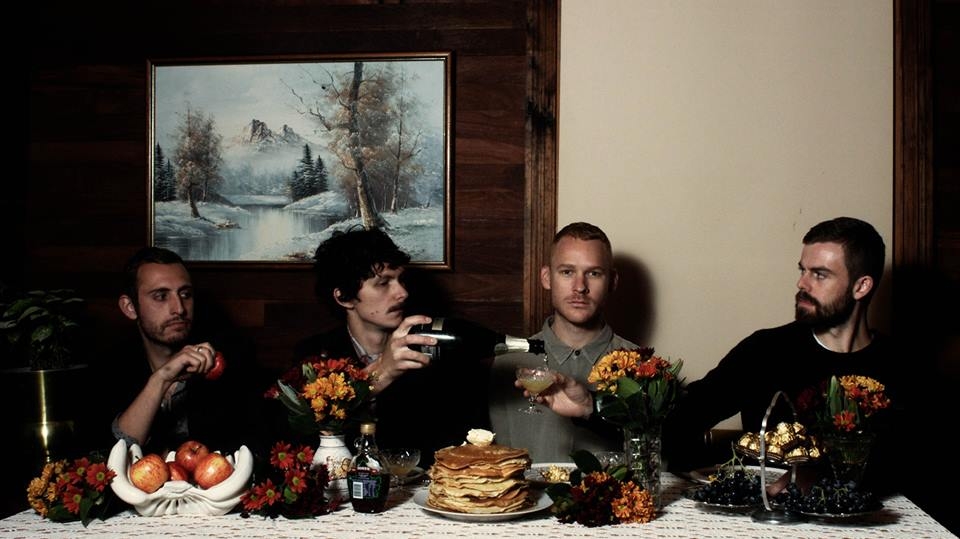There’s a moment of hesitation when Clint Mansell and his eight-piece band walk on stage. A woman seated at the front of the balcony parts her hands to clap but she freezes for a second, as if she’s wondering, ‘Are we supposed to applaud?’ We are, and we do, but it’s a weird vibe, not just for the near-sold out audience but for Mansell himself. Considering he spent the first decade of his musical career in clubs fronting the oddity that was Pop Will Eat Itself, it must feel uncanny to perform in a building typically reserved for opera and classical music.
But Mansell has clearly come to terms with the strangeness of it all, opening the show with his most jarring work – an eight-minute piece drawing on the soundtrack from the first feature he scored, Pi. A screen suspended behind the band splices footage from the black-and-white film with uncomfortable extreme close-ups of ants and other insects.
Mansell’s backing band combine the two musical worlds he’s inhabited in his 30-year career. To his right and behind him, the standard rock setup: a guitarist, bassist and drummer. To his left sits a pianist behind a mammoth of a grand piano, and a string quartet. Mansell sits front-and-centre-stage, alternating between a laptop, a keyboard and a guitar.
The scores are separated into suites compiling segments from each of his film soundtracks – not quite songs but not quite movements either. He condenses Moon into a riveting 15-minute piece built around the film’s two haunting piano riffs, while the screen behind projects stunning time-lapsed imagery of downtown Los Angeles at night and the California desert. He introduces Requiem for a Dream to the loudest cheers of the night – probably the only time that agonizing soundtrack will receive a joyous response, and the string quartet literally smack their instruments with their bows in the most tension-filled section of the evening.
Mansell is affable throughout, joking with the crowd and providing a little backstory to each piece. He grows sombre towards the end of the night when he introduces The Fountain, confessing these works sometimes take on a personal significance long after their composition, especially when they deal with loss. As if hearing this music on the flesh wasn’t an emotional gut-punch enough, Mansell seemed visibly moved while he strummed his guitar on that film’s central musical piece, Death is the Road to Awe, bowing his head and drying his eyes between movements. Divorced from the cinematic context, Mansell’s work remains immensely powerful, even for the man himself.
BY MATTHEW TOMICH
Loved: Moon.
Hated: Not a thing.
Drank: Atmosphere.

